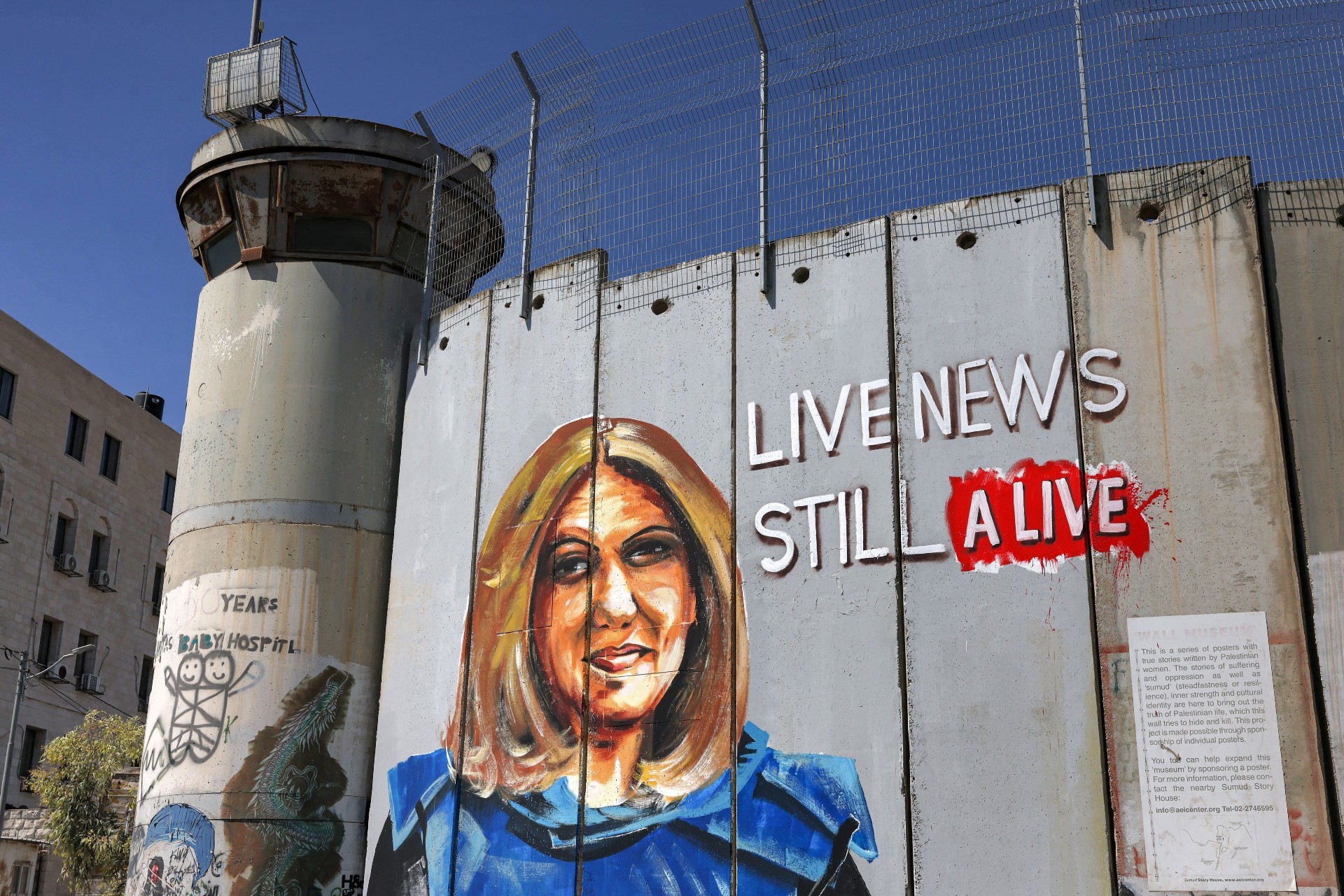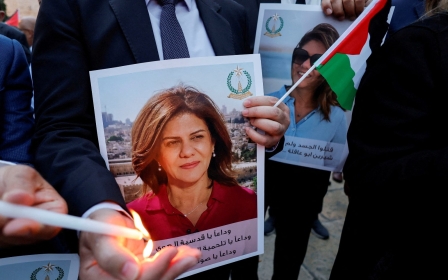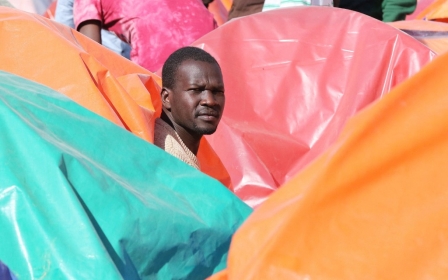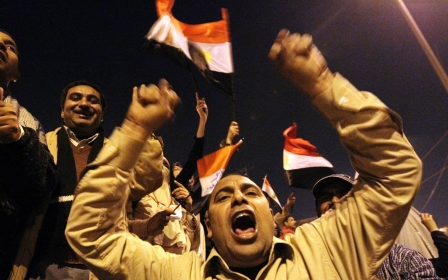Arabic press review: Huge Abu Akleh painting to greet Biden in Bethlehem

Shireen Abu Akleh painting to confront Biden
Any US wish to sweep the killing of Shireen Abu Akleh under the carpet will be unsuccessful next week when Joe Biden travels to Palestine and is set to be met by a huge painting of the Al Jazeera journalist, pan-Arab daily al-Araby al-Jadeed reports.
The image of Palestinian-American Abu Akleh, who was shot dead by Israeli soldiers on 11 May as she covered a raid on Jenin, has been painted on Israel’s separation wall near Bethlehem.
Biden, whose administration concluded in a report that the bullet likely came from Israeli positions but who has been accused of covering for Israel over the killing, will visit Bethlehem in the occupied West Bank on 15 July to meet Palestinian President Mahmoud Abbas.
Artist Taqi al-Din Sabateen said the image was an attempt to convey Palestinian anger, and was painted in a location that Biden could not miss. The Palestinian artist replaced the word “press” on Abu Akleh’s body armour with “justice”.
New MEE newsletter: Jerusalem Dispatch
Sign up to get the latest insights and analysis on Israel-Palestine, alongside Turkey Unpacked and other MEE newsletters
"When Biden enters Bethlehem from Jerusalem, the first thing he sees will be this wall painting," Sabateen said. "The wall painting is an expression of our rejection of the American position on the issue of the assassination of Abu Akleh, and a condemnation of the American report".
UN: World's poor face three major issues
Martin Griffiths, UN under secretary general for humanitarian affairs, has told Saudi daily Asharq al-Awsat that three factors threaten the world’s poor: climate, conflicts and the cost of living.
In an exclusive interview, the former UN special envoy to Yemen also stressed that the right to asylum should not be linked with obtaining nationality.
According to Griffiths, the global cost of living crisis "is already causing more poverty, hunger and malnutrition, which threaten lives.
"We urgently need to see the types of social protection solutions implemented by many governments during the pandemic, along with debt alleviation for vulnerable countries, and increasing investment in basic services, which are essential for resilient societies," he said.
He said the Ukraine war has placed "enormous pressure on the food system, which already suffers from severe exhaustion, by raising the prices of wheat, corn, fuel and fertilisers, and disrupting supply systems". Yemen, Lebanon, Palestine and Sudan are among those worst affected, he warned.
As for Yemen, Griffiths described the recent truce as "a real opportunity to resume political discussions and end the war, and it is important to maintain and accelerate its momentum".
Difficult Eid for Jordanian consumers
Jordanians are celebrating Eid al-Adha this year in particularly difficult economic circumstances, with a new Arabi21 report underlining the rise in costs.
Last month, inflation rose 4.39 percent compared with the same period last year, and 2.6 percent compared with the first four months of 2022, according to the news site.
Various commercial sectors in Jordan confirm that there is a "weak demand by the Jordanians to buy the necessities of Eid, including clothes, sacrificial animals and sweets", the report said. Jordanian shops have been unusually quiet on the eve of Eid, due to the "weak purchasing power of citizens".
The representative of the clothing, shoes, fabrics and jewellery sector in the Jordan Chamber of Commerce, Asaad Al-Qawasmi, said: "The activity is low and does not meet our ambitions and preparations for Eid al-Adha, and is not sufficient for an occasion like this. There is a general weakness in all regions of the kingdom, due to the lack of sufficient liquidity, and the decline of the purchasing power of Jordanian families."
Artist honoured by Sisi accused of plagiarism
A new mural in a Cairo metro station has caused uproar, after the artwork was accused of being copied from a Russian artist without his permission, London-based newspaper al-Quds al-Arabi reports.
After spotting the mural, Georgy Kurasov said on social media: "My paintings were used in the Cairo subway without obtaining my permission and even mentioning my name."
Kurasov complained that he is awaiting an official response and would turn to the Egyptian judiciary if necessary.
The National Authority for Tunnels responded by saying it had contracted the Wali Studio advertising agency, affiliated with the artist Ghada Wali, to create artistic designs for a cultural project at Green Line stations.
The statement said the agency was entirely responsible for providing the designs and a clause in the contract stated artists’ permission must be granted if borrowing from their work.
That contract was terminated in March, the authority said, due to a breach of other terms and conditions. It added that the authority had no knowledge that the designs were taken from the Russian artist, and it promised to remove them.
Safaa al-Qabbani, head of the Syndicate of Fine Artists, said: "Designer Ghada Wali is not a member of the Syndicate of Fine Artists, and I did not have the honour to know her."
She described the murals as an infringement against Kurasov and his intellectual property rights.
Wali was honoured by President Abdel Fattah el-Sisi at the World Youth Forum in Egypt, and she has also received several international awards in the field of graphic design.
Middle East Eye delivers independent and unrivalled coverage and analysis of the Middle East, North Africa and beyond. To learn more about republishing this content and the associated fees, please fill out this form. More about MEE can be found here.




